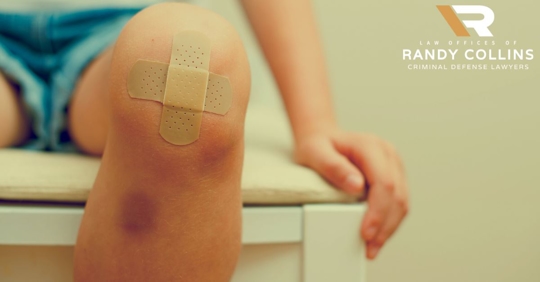What is Used as Evidence in Domestic Violence Cases?
Domestic violence is one of the most serious criminal offenses. So much so that, for misdemeanor offenses, you can still end up losing the same rights that convicted felons do. Let’s go over what evidence is used to convict someone of a domestic violence offense.
Physical Evidence
Photographs
Photographs are a major part of a domestic violence case and are some of the strongest evidence that an alleged victim can present.
Any visible injuries are often photographed, as well as any images of damaged property at the scene of the crime.
Photographs are also used to supplement each individual’s memory of the event. Did you know that, in stressful situations, humans have a weakened ability to form short-term memories? This means that during an intense domestic dispute, it’s likely that the memories of the situation won’t be fully accurate. Pictures taken at the scene may be used to show what truly happened.
Broken Property
During a violent domestic dispute, property may be damaged or destroyed. If the property that was destroyed could have caused harm to the alleged victim, this can be used as evidence. An example of this may be if items were thrown with the intent to cause physical harm or fear.
If there was no intent to cause physical injury to the victim, but property was damaged, you may face vandalism charges rather than domestic violence charges.
Medical Reports
Medical reports serve as very strong evidence in domestic violence cases. Medical professionals are required to follow mandatory reporting laws. This means that if they treat a patient who they suspect has suffered injuries from a domestic violence incident, they are required to report this to law enforcement.
Verbal Evidence
Victim Testimony
The victim’s account of events has a lot of weight in domestic violence cases. Unfortunately, this means that even in cases where the victim is lying about events, it is often taken as truth.
Individuals may make false domestic violence allegations:
- To hurt the other person’s chances of getting child custody
- For revenge after a breakup
- For attention
Witness Testimony
Prosecutors may call on any witnesses to share what they heard or saw during the domestic violence incident. This may include neighbors, family members, or any other bystanders. It may also be police officers, who can share what they witnessed when they arrived at the scene.
Defense Strategies for Domestic Violence Charges
Because a lot of evidence in domestic violence cases is based on the verbal retelling of events, it can be hard to prove when the alleged victim is lying or exaggerating. If you are facing domestic violence charges, you need to begin working on your defense right away.
Self-Defense
Self-defense is one of the most common defenses in domestic violence cases. Sometimes, the individual who provoked the violence also ends up being the first one to call the police, making it more confusing to figure out who started the physical altercation. An attorney can help prove that you acted out of self-defense.
De Minimis Infractions
This legal term means that what occurred between the alleged victim and yourself was so minor, it doesn’t warrant a criminal charge. This may be the case if you were verbally arguing and the alleged victim called the police unnecessarily, or out of emotion when no one was really in danger.
Domestic Violence Defense in California
Our attorneys at Law Offices of Randy Collins know what evidence prosecutors will use in a domestic violence case, and we know how to combat it. Working with an experienced defense team is the best way to get the best possible outcome in a domestic violence case. Call us today at (844) 285-9559 to learn more about what makes us the best team to fight for you.

